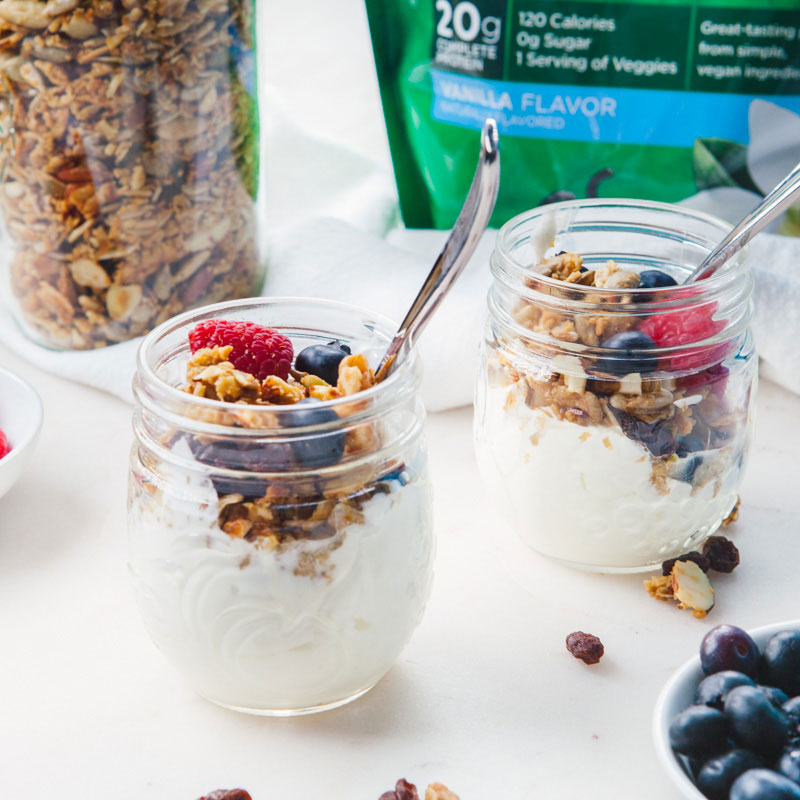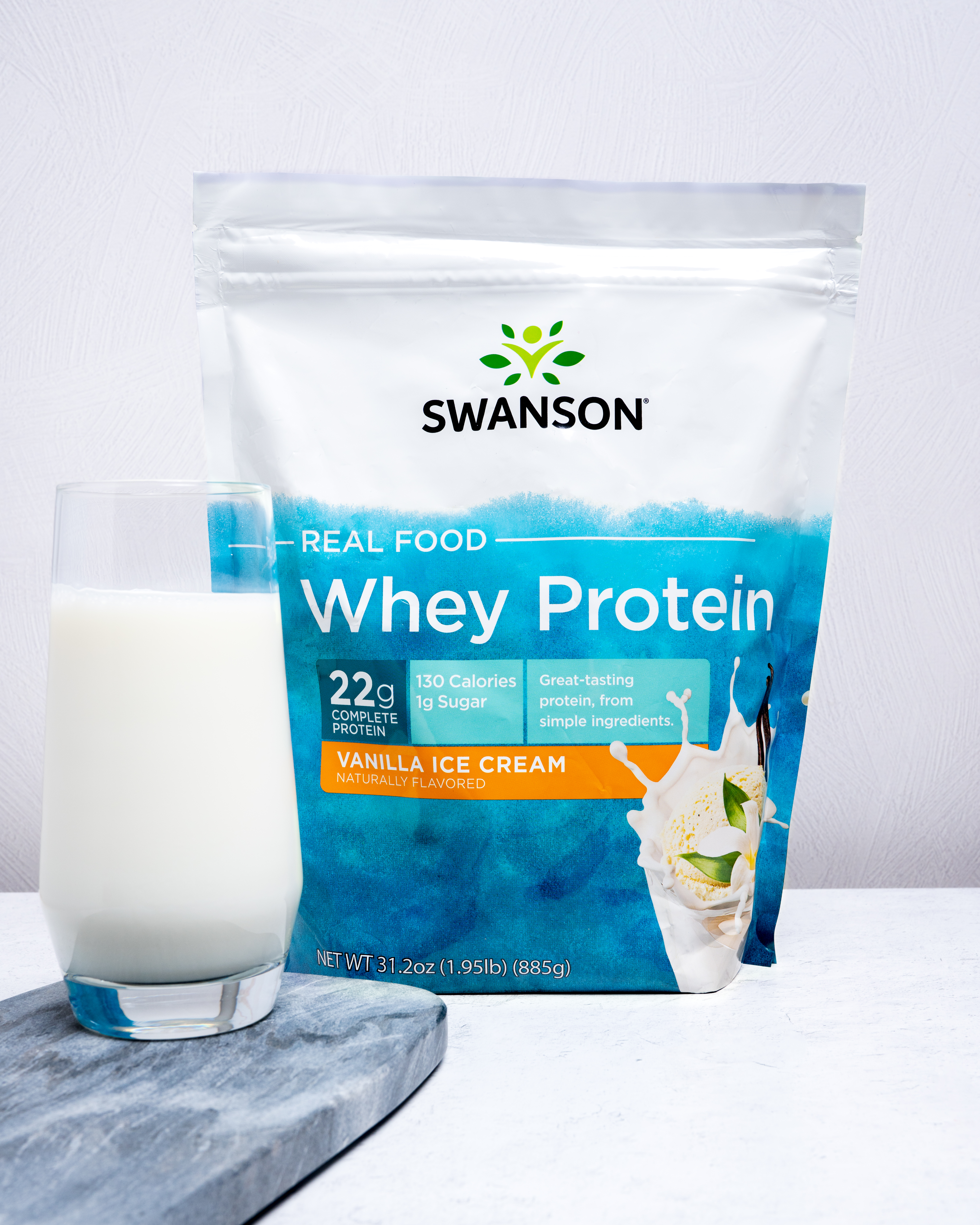Making Workout Supplements Work for You
Maintaining an active lifestyle is a healthy habit that reaps a number of benefits, from strengthening muscles and keeping joints limber, to improving sleep quality and mood. When it comes to creating an “effective” workout or fitness routine, many people turn to supplements to enhance their performance and end results.
In the world of fitness, you’ll find that there are a lot of workout supplements to choose from, ranging from pre-workout powders and protein shakes to fish oils and BCAAs. But which ones are worth taking and does it matter when you take them?
Depending on your fitness goals, there may be a workout supplement that can help streamline your routine and lend some health benefits, especially if you take them at certain times during the day.
Best Pre-Workout Energy Supplements
Taking certain supplements before starting your workout can help give you a boost of energy, sustained endurance and even more.1 By loading up on pre-workout supplements, you may be able to get a kickstart to your routine and keep the ball moving without tiring out as quickly.
Protein Powder
Protein powder is a super versatile and simple win for upgrading a breakfast smoothie or pre-workout shake. Protein can come from numerous sources making it easy to fit any diet such as the popular whey protein, lactose-free pea protein and even isolate if you’re looking for fewer calories.
This tasty powder helps give your body the fuel it needs to maintain a healthy amount of energy during workouts without making you feel bloated or heavy. You can also take protein after a workout to help nourish your body and encourage muscle strength and recovery.2
Protein is one of the workout workhorses that adds a lot of nutrition to your daily diet. If you’re looking to add just one workout supplement to your fitness routine, protein powder is a great one to keep your body strong and satiated.
When to take protein powder: Try taking the recommended amount of protein 30 minutes before your workout and/or 30 minutes after. It can also work as a breakfast booster if you’re looking to feel fuller for longer.
Caffeine
Many pre-workout powders and products contain some amount of caffeine to provide some energy before your workout. Caffeine is a stimulant that can be found in some products and ingredients like tea, coffee and energy drinks.
“Caffeine ingestion delays mental fatigue, enhances reaction time and coordination, maintains exercise intensity for longer duration, and delays onset to exhaustion,” says Jessie Anderson, a registered dietitian and sports nutritionist from Top Nutrition Coaching.
Jessie also noted that most workout supplements and other products may contain higher than normal amounts of caffeine. Hence, staying within the FDA recommended limit of caffeine intake of no more than 400mg/day can reduce the risks associated with excess caffeine.
Also, be wary of the side effects that come with caffeine such as jitters or fatigue that can come after and look for products that have L-theanine to help balance that out and avoid the “crash.”
If pre-workout powder doesn’t fit your diet or lifestyle, you can also find caffeine in capsules which makes it easier for on-the-go and even better if you want to do some cardio without drinking too much beforehand.
When to take caffeine supplements: Since caffeine comes in many shapes and sizes, ideal time may vary, however you can expect a pre-workout powder to kick in typically within 20-45 minutes. If you’re sensitive to caffeine, be sure to start at a smaller dose and see how you feel or consider alternatives like a plant-based source of caffeine.
Best Supplements to Take During Workout
The most important thing to consume during a workout is water. Be sure you’re staying hydrated when exercising and monitor how you’re feeling. While it’s good to push your limits, listen to your body and take rest and water breaks through your workout routine.
BCAAs
BCAAs—or branched chain amino acids—are a specific type of amino acids that our bodies can’t create on their own and are the building blocks for protein. Because of their unique branched-chain structure, only three amino acids are considered BCAAs: valine, leucine and isoleucine.
These essential amino acids are metabolized and provide energy to muscles and may even help with muscle recovery and fatigue. While it’s fine to take BCAAs before or even after a workout, studies suggest it may be beneficial to fit them in during a workout for a little extra energy and enhanced performance.3
When to take BCAAs: Try taking capsule or tablet early-on during your workout or consume drink mix forms of BCAAs throughout your exercise routine.
Best Post-Workout Supplements
Taking supplements after your workout can help kickstart the recovery process for your body. Whether that means repairing muscles or lowering your adrenaline levels, there are some great options to help you come down from a successful workout so you can either get ready for the day or wind down for the evening.
Ashwagandha
This adaptogen is great for helping lower cortisol levels that can rise during physical activity and help calm your mind. Studies are still being done to test if this herb can also act as a workout recovery supplement, but regardless it can add some much-needed mental wellness benefits to restore healthy levels of stress and encourage a positive mood.4
Creatine
Creatine monohydrate is a widely researched fitness supplement that is best taken shortly after a workout.5 Many gym goers enjoy creatine for both optimizing their workouts, and recovering from them as well. The benefits range from increased strength, fat-free mass, and improved muscle structure when done with heavy resistance training to supporting lean muscle mass and a healthy body composition with regular exercise. Along with fueling muscles with essential energy needed to function, creatine can also help speed up muscle recovery to help you bounce back sooner and hit the gym harder.
Amino Acids and Their Derivatives
There are 20 amino acids that make up proteins, and they have unique offerings when it comes to post-workout benefits.
L-glutamine is an amino acid that promotes muscle growth and recovery along with potentially improving protein metabolism and providing fuel for activities—perfect if you had a morning workout and still have a list of things to do.
N-acetyl cysteine, or NAC, is an amino acid derivative with excellent antioxidant properties that support muscle repair and recovery in the body.
L-carnitine is also an amino acid derivative that can be taken about an hour before your workout, however it can provide recovery and even weight loss support when taken afterwards as well.
When to take amino acids: Since there are lots of amino acids to choose from, the time to take these supplements may vary from one to the other, so check the label for the best option on these.
Where to Buy Workout Supplements
If you’re looking for quality workout supplements with ingredients you can trust, we carry hundreds of options so that you can cater your fitness routine to your specific needs.
While workout supplements aren’t required to enjoy a healthy workout, the benefits they can offer and nutrients they can provide can help make it a more enjoyable and rewarding experience. Be sure to check out our extensive line of workout supplements and see which one will help you on your fitness journey.
You be well, now.
Swanson
*These statements have not been evaluated by the Food and Drug Administration. These products are not intended to diagnose, treat, cure, or prevent any disease.

About Dr. Christopher Oseh
Christopher Oseh, MD, is a trained primary care physician leveraging almost a decade of clinical experience managing and counseling patients toward better health through positive lifestyle changes. He has a strong track record of treating and co-managing individuals with chronic illnesses.
Sources:
- Effects of Pre-Workout Supplements. Journal of International Society of Sports Nutrition. Read source
- Effects of Protein Supplementation on Performance and Recovery. National Library of Medicine. Read source
- Effects of BCAA Intake During Endurance Exercise. National Library of Medicine. Read source
- Randomized Double-Blind of Ashwagandha and Stress. Read source
- The effects of pre versus post workout supplementation of creatine monohydrate on body composition and strength. Journal of the International Society of Sports Nutrition. Read source.




